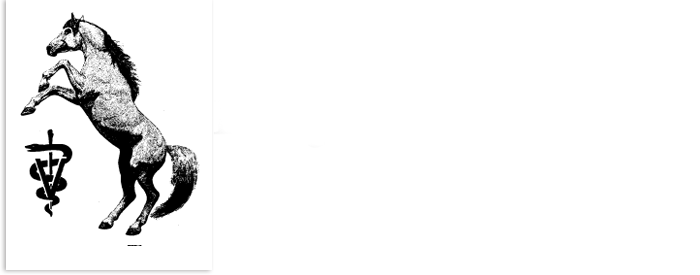NARCOLEPSY - the Sleeping Disease
Narcolepsy is most commonly known in humans. Characterized by uncontrolled periods wherein the affected person falls asleep, the disease might appear comical if it were happening to someone else. Although extremely rare, it can occur in horses. It is characterized by episodes of loss of muscle tone called "cataplexy". The disease has been report in Suffolk and Shetland ponies, in Welsh ponies, Miniature horses, Thoroughbreds, Quarter horses, Margins, Appaloosas, and Standardbreds.
The most common way that horses present is with sudden collapse (cataplexy). The episodes can be brought on by petting, stroking the head and neck, hosing with water after exercise, leading out of a stall, initiation of eating or drinking and stall rest, depending on the case. Exercise does not appear to lead to episodes of collapse. The biochemical abnormality is believed to be in the sleep-wake center of the brain. One of three neurotransmitters (chemicals in the nervous system that pass information from one nerve cell to the next), serotonin, dopamine and norepinephrine may be responsible for the problem.
Episodes can vary from mild muscle weakness to complete collapse. Adult horses can drop their heads, buckle at the knees and stumble. If forced to walk, they may appear drunk or sedated. Ponies may lie down completely. The event can last from a few seconds to 10 minutes. Between attacks the horse appears normal.
To diagnose Narcolepsy your vet would consider the history, the signs that appear during attacks while ruling out of all other possible causes for the symptoms. Finally there is a specific test for narcolepsy. Recently, I saw a case where the horse had all the signs consistent with the disease but when a blood profile was taken it turned out that the horse had a severe virus.
The specific test is to try to cause an attack by the administration of physostigmine salicylate. In horses with narcolepsy, this drug will cause an attack within 3 to 10 minutes.
Therapy for narcolepsy consists of administration of the drug, Imipramine. Imipramine is an antidepressant drug. It can be given either orally or by injection. The prognosis for narcolepsy is variable. Some young horse may have several full-blown attacks then go on to a full recovery. Other horses and ponies may have it for the rest of their life. In any event, if you ever see a case of narcolepsy, you are seeing something you are unlikely to see again in your lifetime.

